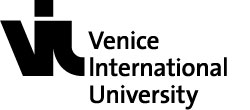F1821 Politics and Propaganda in Film
Professors
Schedule
Course Description
The course examines the uses and abuses of the film medium to project political messages. The class employs a critical analysis of explicit and implicit forms of political propaganda transmitted via popular culture. Each week has two sessions: first, themes are introduced in lectures and readings, which outline the political context and social setting in which films were made as well as the work of influential directors and particular film genres. Second, the film is viewed and followed with a discussion based on readings and lecture themes. This course combines Humanities and Social Sciences and includes two Italian films on the marquee.
Course Outline
-- A Mass Medium for Mass Politics: Propaganda Nation
1) From Revolutionary Montage to Socialist Realism
-October (Eisenstein)
2) Pagan Pageantries of Power: German Fascism
-Triumph of the Will (Riefenstahl)
3) Renewing Faith in Democracy: American Populism
-Mr. Smith Goes to Washington (Capra)
--Righting Wrongs Around the World: The Western
4) Send in the Cavalry: Myth Making and Morality Plays
-Fort Apache (Ford)
5) The Lone Hero: From McCarthyism to Solidarity
-High Noon (Finneman)
6) Vigilante Justice and Spaghetti: The Cowboy through a European Lens
-The Good, the Bad and the Ugly (Leone)
--Hollywood Goes to War: The Cold War as Tragedy and Farce
7) Post-War Paranoia and Fantasy Run Amok
-Invasion of the Body Snatchers (Siegal)
8) Vietnam and the Surrealism of War
-Apocalypse Now (Coppola)
9) Demythologizing the Military and Nuclear Arms Race
-Dr Strangelove (Kubrick)
--Coming to Terms with the End of Empire, or Not
10) Doing Penance in Italy: Neorealism Reaction
-Open City (Rosselini)
11) The Spy Who Saved Britain: Flights of Fantasy
-From Russia with Love (Young)
12) Fear and Preemptive Justice in America: Science (non)Fiction
-Minority Report (Spielberg)
Class Format, Requirements
The class is organized around the movies, plus - lectures and readings, and critical discussions of films. Students are required to attend class and participate in discussions. Students are also required to write four critical reviews (1000-1500 words) for each thematic section. The class also includes a group project, in which students will participate in writing, directing, acting, and editing their own political propaganda project. Each student is also required to submit a final paper (1500-2000 words), which reflects on their role in the group project. Hopefully, short film will be produced through your individual efforts.
The main goal is to cultivate student awareness of the multi-sided media barrage of propaganda that frames the social-political environment in which we live.
Evaluation
Evaluation of student performance is based on: 10 percent for each critical review essay (40%); 10 percent for attendance/discussion participation; 50 percent for group project and final reflection paper.
Sample Reading List
--Selections from:
Edward Bernays, Propaganda
Eric Rentschler, Ministry of Illusion: Nazi Cinema and Its Afterlife
Peter Kenez, Cinema and Soviet Society: From the Revolution to the Death of Stalin
Richard Taylor, Film Propaganda: Soviet Russia and Nazi Germany
Ernest Giglio, Here’s Looking at You: Hollywood, Film and Politics
Peter Haas and Terry Christensen, Projecting Politics: Political Messages in American Films
Larry Ceplair and Steven Englund, The Inquisition in Hollywood: Politics in the Film Community
Carolyn Weber, Imagining America at War: Morality, Politics and Film
Linda Dittmar and Gene Michaud, From Hanoi to Hollywood: The Vietnam War in American Film
Simon Winder, The Spy Who Saved Britain: The Disturbing World of James Bond
Christopher Frayling, Spaghetti Westerns: Cowboys and Europeans
Peter Bondanella, Italian Cinema: From Neorealism to the Present




















